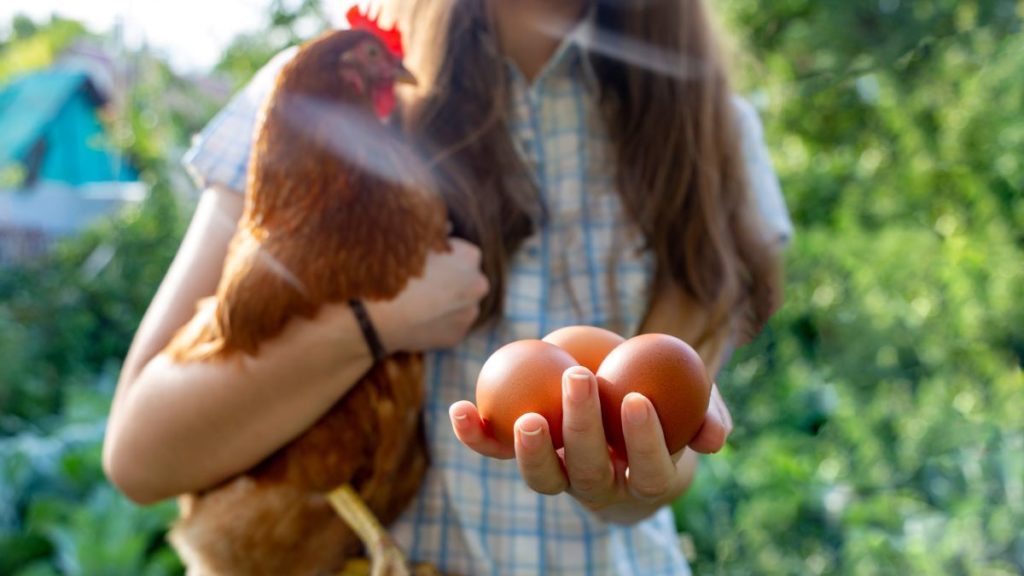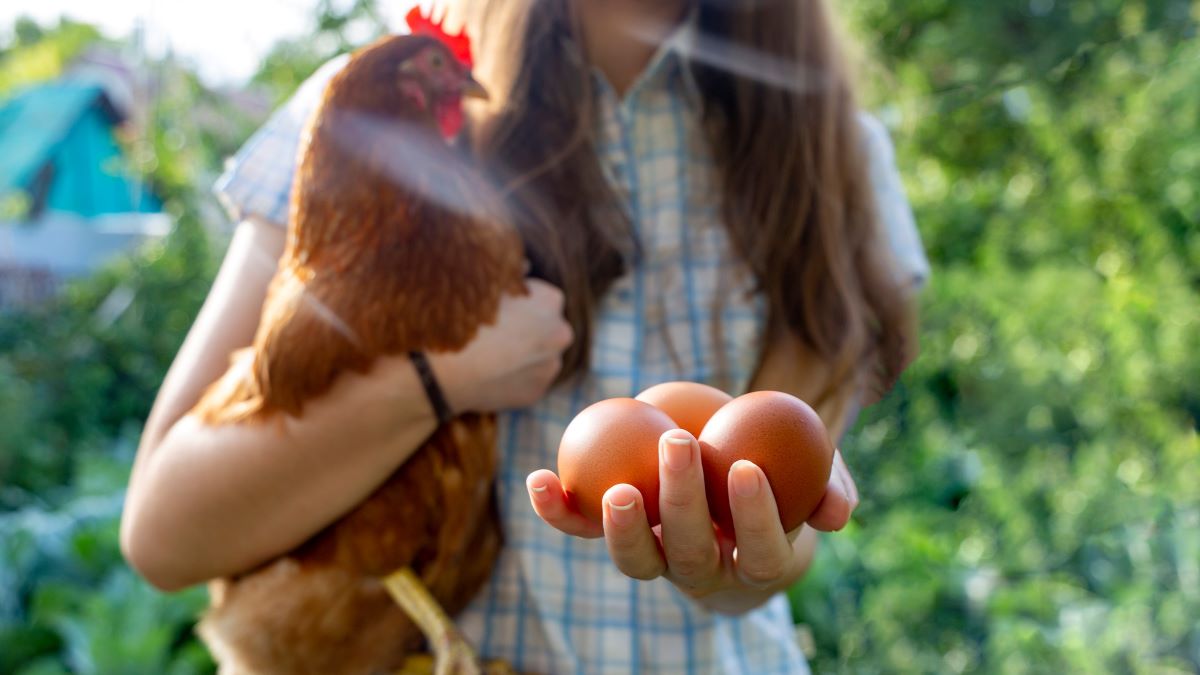
5 Environmental Benefits of Backyard Chickens

It’s hard not to be aware of your environmental impact these days. But it can also feel hard to effectively limit it without leaving society entirely and taking to the trees. While there’s no need to do anything that drastic, partially opting out of industrial agribusiness by keeping a flock of chickens is a relatively accessible option for many people who want to reduce their environmental impact.
By choosing not to support the industrial machine, you send a message to those profiting from it that they need to radically change their systems. But beyond making a statement, keeping a flock of backyard chickens offers many environmental benefits. Here’s why a backyard flock is better for the planet than even the best store-bought eggs.
1. More Efficiency, Less Waste
A well-managed homestead flock is much more efficient than an industrial operation. Homesteaders often keep a chicken until the end of her natural lifespan, or close to it. Some will then choose to eat their dead birds, eliminating almost all waste associated with them. Industrial operations, on the other hand, often gas their hens as soon as they’re past peak laying age — usually about 18 months to two years old. Some of these corpses are processed into pet food or other products, but hundreds of thousands are landfilled every year.
In terms of emissions, a 2014 study estimated that 63% of emissions from egg production come from producing the grain-based feed that is commercial birds’ only source of nutrients. Backyard chickens, meanwhile, can eat a more varied diet that’s supplemented with kitchen scraps, garden waste, wild plants, and the various bugs, greens, and worms that free-range chickens forage. This not only produces healthier, tastier eggs but also lowers hens’ reliance on grain-based feed and consequently, their lifetime carbon footprint.
2. Reduced Food Waste
A backyard flock helps reduce household food waste. According to the United Nations Environmental Program, households account for more than twice as much food waste as restaurants, and five times as much as retail outlets. A 2016 study found that 77% of consumers feel guilty when they throw away food, but also that two-thirds of respondents felt some food waste was necessary to ensure safe, fresh-tasting food. A flock of chickens can help people reduce food waste without compromising quality.
Chickens love many kinds of kitchen scraps, including off-cuts of meat and fish. You shouldn’t feed your birds moldy or maggoty food, but chickens have a stronger digestive system than humans and can and will happily eat many things that we usually avoid. Do some research before you give your birds any kitchen scraps, as some ingredients are toxic to them. Also, avoid giving them seasoned foods — many spices and herbs will make chickens sick.
3. Natural Pest Control and Fertilizer for Your Garden
Chickens can eliminate the need for toxic chemicals in the garden. Synthetic chemical fertilizers, herbicides, and pesticides can cause serious harm to the surrounding environment and wildlife. For one thing, most of these products are petroleum-based and therefore create significant pollution and emissions just in their production. Additionally, runoff from these products causes major pollution in waterways, resulting in the mass poisoning of fish, dangerous algae blooms, and “dead zones” in waterways, where neither plants nor animals can live.
Your backyard chickens can make it easy for you to grow a healthy vegetable garden without any need for harmful chemicals. Chickens love to eat bugs and uproot plants, and their carefully-managed presence in your garden can easily eliminate both pests and weeds. In addition, their nitrogen-rich waste composts into an excellent fertilizer, which is especially good at rejuvenating exhausted soil.
4. Multiple Opportunities for Upcycling and Reuse
A chicken coop is a perfect place to upcycle and reuse a lot of things that you might otherwise throw out. While most coop owners who choose to build their coops do so for economic rather than environmental concerns, relying on surplus supplies and online coop plans, there are environmental benefits to this strategy as well. In general, the more uses you can get out of a material, the better it is for the environment. You can reuse scrap lumber, old furniture, and discarded pallets when constructing or repairing an affordable, environmentally friendly chicken coop.
5. Reduced Carbon Emissions
Producing eggs at home reduces emissions from shipping, refrigeration, and transport. A 2022 study from the University of Sydney in Australia found that 19% of food-related emissions come from transport, accounting for 6% of all global emissions. Eating local is a great way to reduce these emissions, and it doesn’t get more local than your backyard. Walking into your garden and then back to the kitchen produces no greenhouse gasses unless you want to count the carbon dioxide you breathe out while doing it.
Additionally, non-pasteurized eggs fresh from the nest don’t need to be refrigerated, which further reduces the emissions associated with them.
Reduce Your Environmental Impact With Backyard Chickens
If you eat eggs and chicken, keeping hens is an excellent way to help reduce your impact on the environment. Chickens and especially eggs are already some of the lowest-impact animal-based protein sources available. Even industrial production methods don’t have the same catastrophic impacts and emissions as beef and pork. By keeping a flock in your backyard, you can reduce your emissions even further, and do something positive for your family, your health, and your planet.
About the Author
Chris Lesley has been raising backyard chickens for over 20 years and is Chickens And More poultry expert. She has a flock of 11 chickens (including three Silkies) and is currently teaching people all around the world how to care for healthy chickens.
Services Marketplace – Listings, Bookings & Reviews